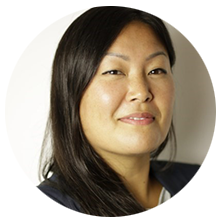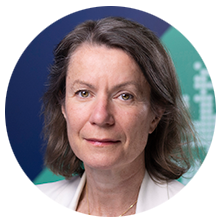Watch the webinar - Eurofound LIVE: Is Europe's green transition in jeopardy?
Eurofound organised together with the European Environment Agency (EEA) an interactive webinar looking at the future prospects of Europe’s green transition, with a live Q&A on Thursday 4 July 2024.
Time: 10:00–11:00 Irish Time / 11:00–12:00 Central European Summer Time.

Thursday, 4 July 2024
Start
10:00
End
11:00
Event background
The debate
Climate change is a serious global issue, and tackling it requires us to make changes. But not only do we need appropriate policy measures to drive the shift to a carbon-neutral economy, we also need sound policy to ensure no one is left behind – we need to ensure a just transition.
In this #EurofoundLive webinar, Maria Jepsen, Eurofound Deputy Director, and Riyong Kim, Head of Sustainability Transitions at the European Environment Agency, discuss why Europe has embarked on its green transition, what the impact of the green transition will be on jobs, and the prospects for Europe’s environmental policies are for the future. The debate is moderated by Mary McCaughey, Head of Information and Communication at Eurofound.
Watch the webinar
The increase in extreme weather events and record temperatures in the last year alone have turned what was once a distant threat of climate change into the immediate climate crisis that we see today. Not only do 88% of EU citizens agree that the EU should be climate-neutral by 2050, over half (58%) are now saying that this transition needs to speed up.
The EU is taking unprecedented steps to tackle the issue with an ambitious commitment to cut greenhouse emissions by at least 55% by 2030. Through the European Green Deal, with legally binding targets set in the European Climate Law, and in line with global climate action under the Paris Agreement, the EU is laying the groundwork to become a climate-neutral economy by 2050.
At the same time, post-pandemic increases in the cost-of-living in Europe and a perception, particularly in rural communities, that some green policies are exacerbating this has taken hold. There is also concern that Europe could lose its competitive advantage to other regions and countries less concerned by environmental policies and legislation.
The EU has promised that the green transition should be a just transition – that is, it will not leave anybody behind – and has put in place mechanisms to support this objective. This is because the green transition will have an uneven impact on jobs, on regions and on certain sections of society. Understanding these issues is key to ensuring a just transition.
Speakers
 | Speaker: Riyong Kim Riyong Kim is Head of Sustainability Transitions (STR) at the EEA. The Programme activities include the five-year European state of the environment and outlook report (SOER). The work of the Programme covers sustainability challenges and responses including the many interdependencies between social, economic and environmental objectives in Europe and globally. Key foci include progress towards policy objectives and targets, drivers of change, foresight, system transitions, indicators, environmental accounting, environmental economics, sustainable finance, and urban sustainability. Prior to joining the EEA, Riyong led the Programme on Decision Metrics and Finance at EIT Climate KIC. This work included developing a systems innovation approach to tackling short-termism and mainstreaming climate in financial markets in the EU. She has worked in environmental and climate policy closely with the UN Environment and UNFCCC, and before that, led the work on developing the methodology for identifying environmental and forest resources under the Living Standards Measurement Survey with the UN FAO, CIFOR, and World Bank PROFOR, and for the regional ENPI-FLEG program with IUCN. Riyong has an interdisciplinary background, with a BA, and BSc. in Environmental Science from the University of New South Wales, Australia, a MSc in Agricultural Development (Forestry) and a PhD In Natural Resource Economics from the University of Copenhagen, Denmark. She started her career working in international development and leading country programmes in Timor Leste and Aceh, Indonesia, and brings experience from the Brazilian Amazon, and the Democratic Republic of Congo, as well as EU and CEE countries. |
 | Speaker: Maria Jepsen Maria Jepsen joined Eurofound as its Deputy Director in 2019. Prior to this, she was Director of the research department at the European Trade Union Institute (ETUI). She was also an assistant professor and research fellow at the Free University of Brussels (ULB), where she continues to be an associate professor in labour economics. She is also currently an external lecturer at the College of Europe and formerly an external lecturer at the Catholic University of Louvain (UCL). Her main research interests include gender studies, the impact of welfare states on labour supply, wages and working conditions and, more recently, the development of the European social dimension. Ms Jepsen has been a member of various committees, councils and advisory boards at national and international level dealing with employment, social, gender and research issues. She has also served as a coordinator on the European Commission's tripartite advisory committee on health and safety at work. She holds a PhD in Economics and a Master’s degree in Econometrics from ULB. |
 | Moderator: Mary McCaughey Mary McCaughey is Head of Information and Communication in Eurofound. A graduate of Trinity College, Dublin and the College of Europe, Bruges, she started work in Brussels with Europolitics and the Wall Street Journal Europe. She worked with the Association of European Parliamentarians with Africa (AWEPA) in South Africa during the country’s transition to democracy, and in 1998 she took up the post of spokesperson with the Delegation of the European Union in Pretoria, heading up its press and information department during the negotiation of the EU–South Africa free trade agreement. Following the end of the Kosovo War, she worked as a communications consultant for the European Agency for Reconstruction in Serbia. She took up the post of Editor-in-Chief in Eurofound in 2003. |
Image © Ekaterina Pokrovsky/Adobe Stock
Agenda
Series: Eurofound LIVE webinars
In Eurofound LIVE, our researchers team up with external experts to explore key topics in depth. These dynamic discussions provide fresh insights and foster meaningful dialogue on issues that matter.
Watch the webinar - Eurofound LIVE: How is AI changing the world of work in Europe?
Watch the webinar - Eurofound LIVE - Bridging the rural–urban divide in Europe: upgrading the European Union convergence machine
Watch the webinar - Eurofound LIVE: Understanding the socioeconomic impact of the EU's transition to a climate-neutral economy – How to make the Green Deal a reality?
All official European Union website addresses are in the europa.eu domain.
See all EU institutions and bodies


&w=3840&q=75)
&w=3840&q=75)
&w=3840&q=75)